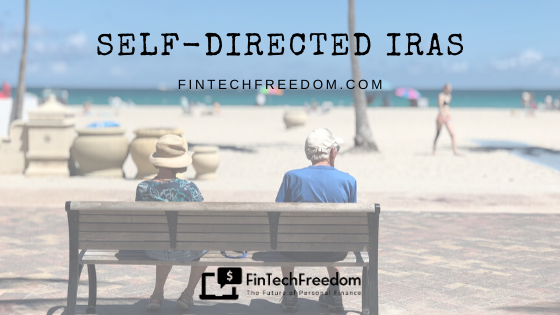A self-directed IRA provides various alternative investment options that are generally prohibited under traditional IRAs or 401(k). Self-directed IRAs are administered by trustees or custodians but are directly managed by the account holders.
A Self-directed IRA is more flexible as compared to regular IRAs because it allows investors to distribute capital in a much broader array of assets. Although the popularity of self-directed individual retirement accounts is gradually increasing, many investors are still not fully aware of the rules and regulations. And as a result, beneficiaries end up getting poor outcome or become disqualified.
Here are the least known but some of the most important facts to help you make a sound judgment and maximize benefits from a self-directed IRA investment.
Contents
Ensure Accurate Documentation and Learn the Fee Structure for a Self Directed IRA
Proper documentation is required for investing in a self-directed IRA. Types of documents largely vary depending upon the asset being purchased. Generally, the required documents are the same as when purchasing an asset in your non-retirement account.
A self-directed IRA has a complicated fee structure. Typically, a one-time establishment fee, first-year annual fee, and renewal fees are charged. Apart from this, you also have to pay for the investment bills.
Choose a Qualified Custodian and Know Their Limitations
The NASAA has specified that only an IRS-approved company is authorized to act as the custodian. Non-depository banks, depository banks, or trust companies can qualify for this. You can also open a self-directed IRA at most major brokerages such as Fidelity and Schwab.
Remember, custodians do not guide investors because it is not their fiduciary duty. Neither do they recommend investment options nor perform due diligence reviews. They serve as an intermediary between investors and the issuer of an investment and do not investigate or verify the accuracy of the information. It is the sole responsibility of the investors to fact-check and decide.
Know Your Investment Options
A self-directed IRA gives you more investment choices than typical IRAs. Apart from mutual funds, stocks or bonds, some other self-directed IRA investment options are:
- Precious Metals: Investing in gold, silver, and other precious metals as an alternative asset helps protect investments against inflation and preserve wealth irrespective of the economic condition.
- Private Lending: Beneficiaries of self-directed IRAs can lend money to borrowers and earn interest, and also receive their invested amount. But lenders are required to handle the necessary paperwork.
- Real Estate: By investing in a property or real-estate you can earn profits. Remember, you cannot live in that property and you have to use the IRA money for the purchase and maintenance of the property.
- Bitcoin and Digital Currencies: Investing in bitcoin and cryptocurrency is relatively new but has great potential. Note that digital currencies are considered capital assets, so when sold at a profit, it would attract taxes.
Learn About Prohibited Transactions and Disqualified People
The IRS has provided a complete guideline on the prohibited transactions and disqualified people. A spouse, employer, fiduciary, and account-holders who own more than 50% in an entity are disqualified. If the account holder is a director or an officer or owns at 10% of an entity, then that is also prohibited.
Know Where Not to Invest
To avoid being disqualified and attracting a penalty, abstain from investing in the following sectors:
- Life Insurance Policy: Buying life insurance plans is not allowed under a self-directed IRA.
- Personal Loans: Self-directed IRAs cannot be used for personal loans.
- Precious Metals Without The Required Purity Level: Precious metals below the purity level of 99% do not meet the eligibility standards.
By exercising due diligence, consulting qualified financial advisors and attorneys, and doing the groundwork, you can not only protect self-directed IRA investment but also maximize benefits.
If you are planning for your retirement we have a number of other resources you can find on the FinTech Freedom website.
Author Bio: Rick Pendykoski is the owner of Self Directed Retirement Plans LLC, a retirement planning firm based in Goodyear, AZ. He has over three decades of experience working with investments and retirement planning, and over the last 10 years has turned his focus to self-directed accounts and alternative investments. Rick regularly posts helpful tips and articles on his blog at SD Retirement as well as Business.com, SAP, MoneyForLunch, BiggerPockets, SocialMediaToday, and NuWireInvestor.

